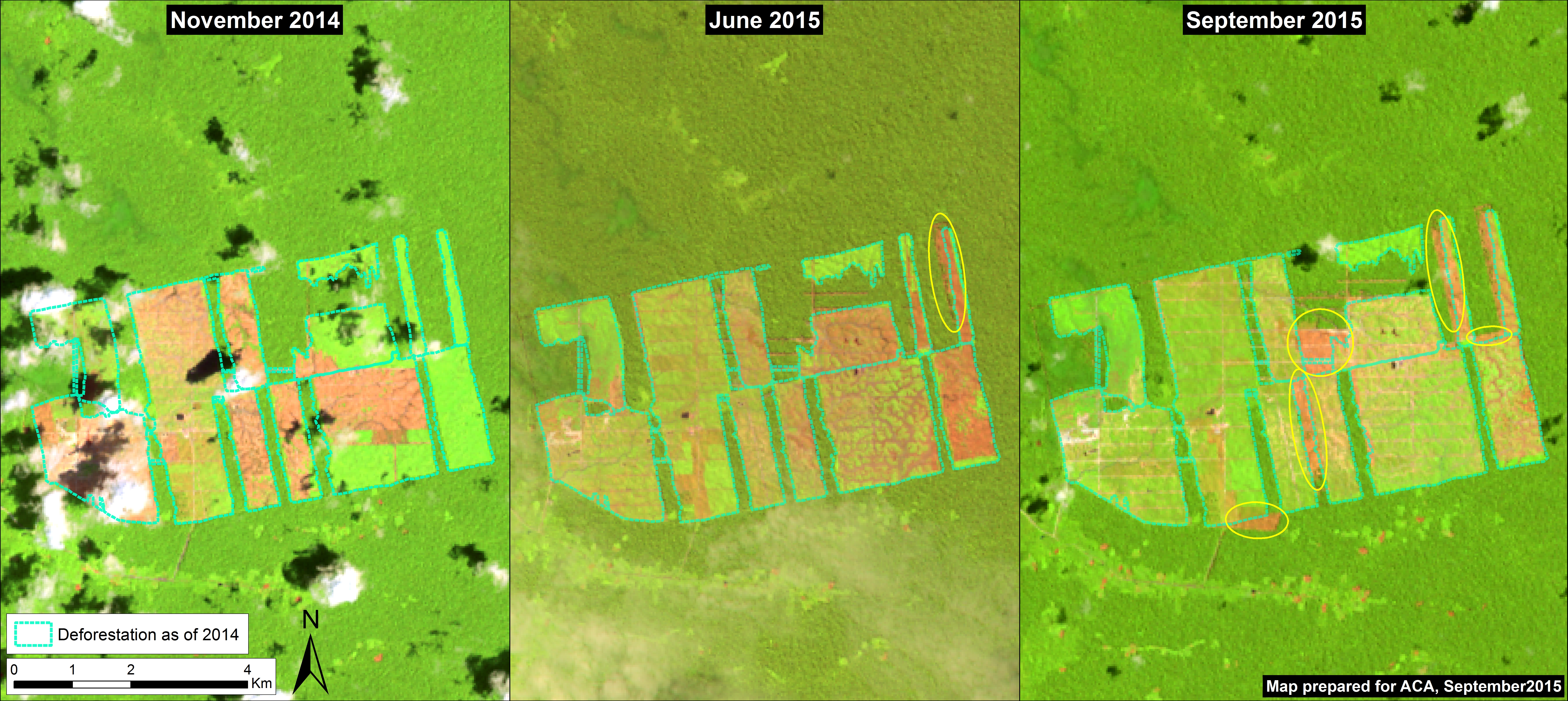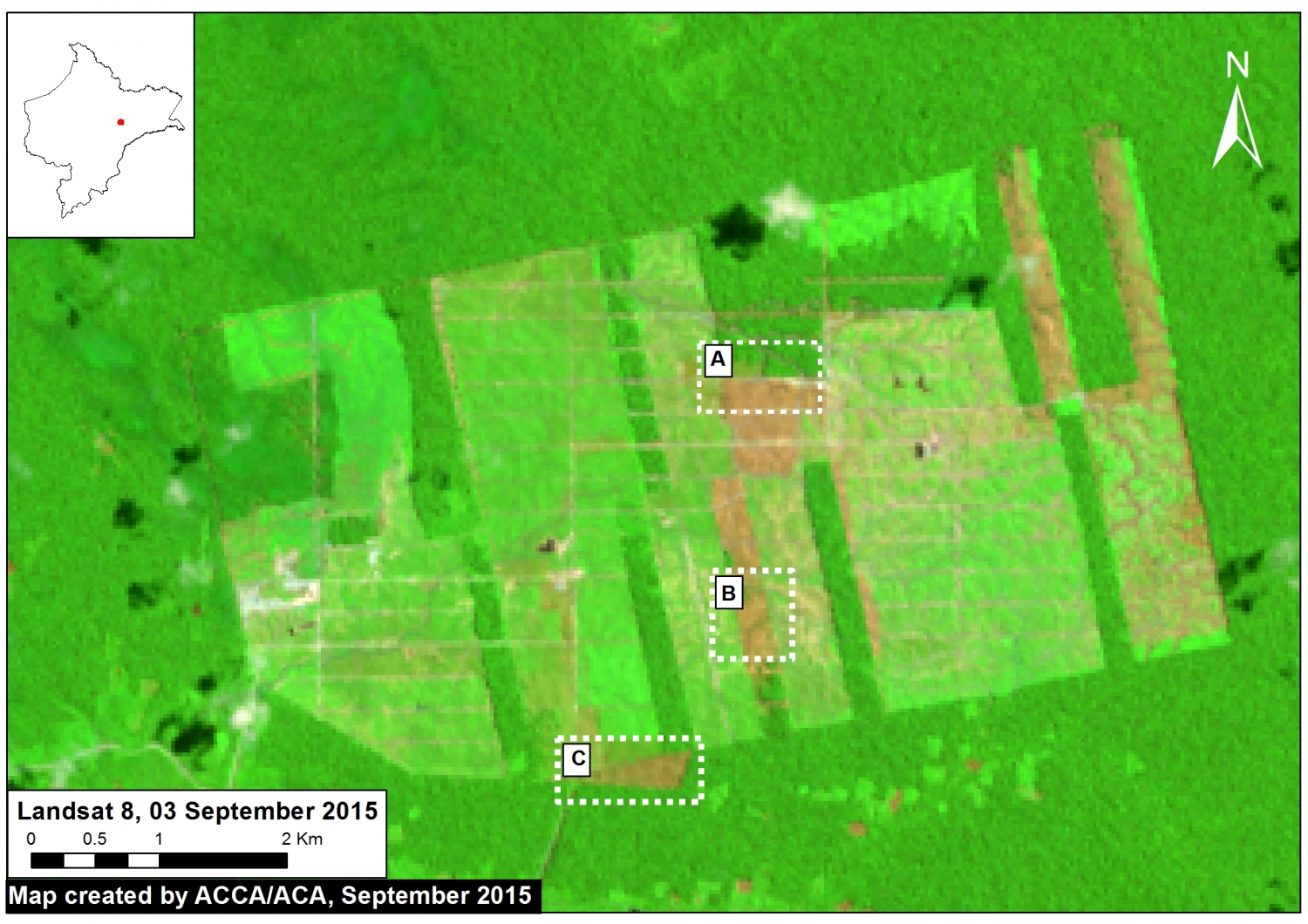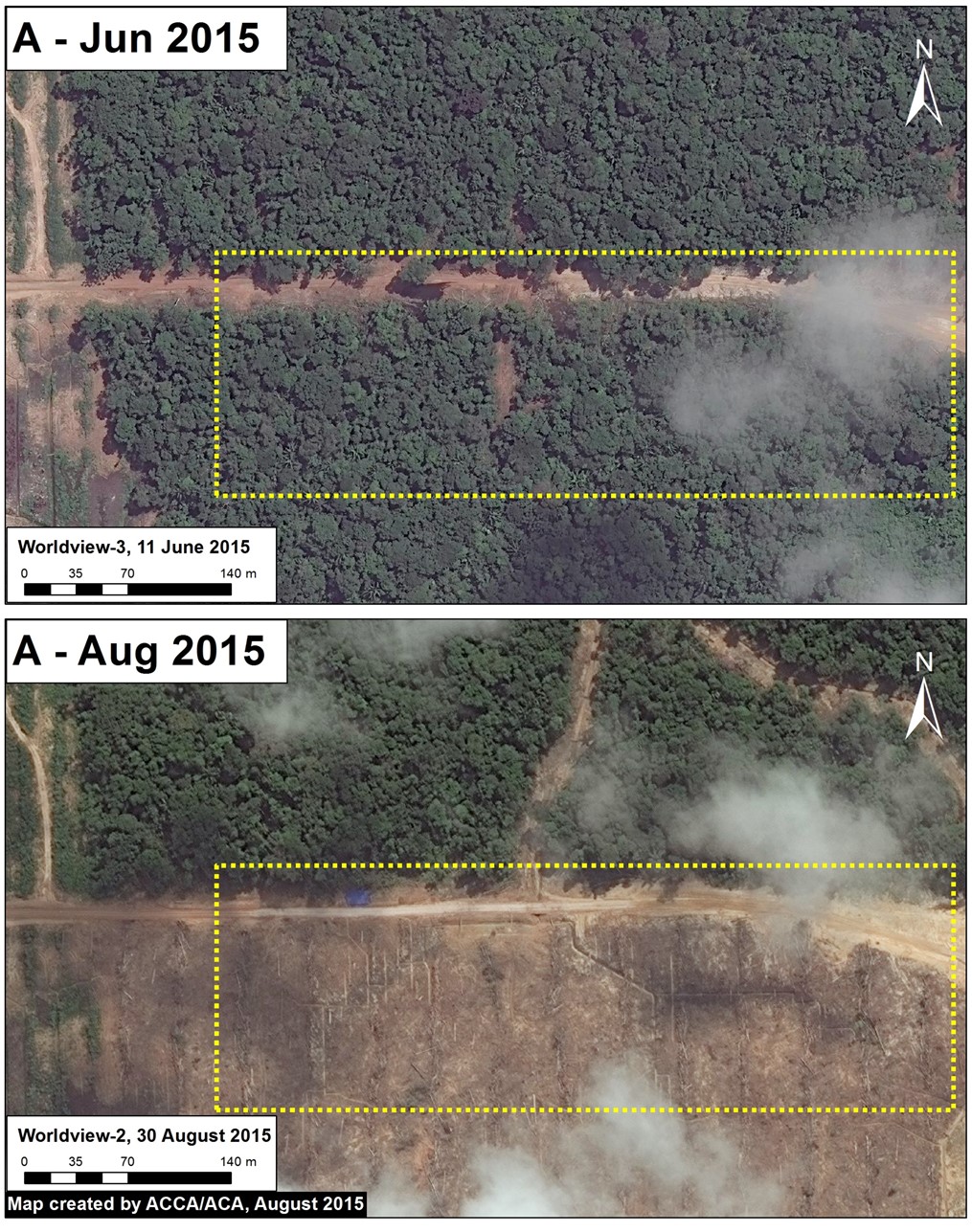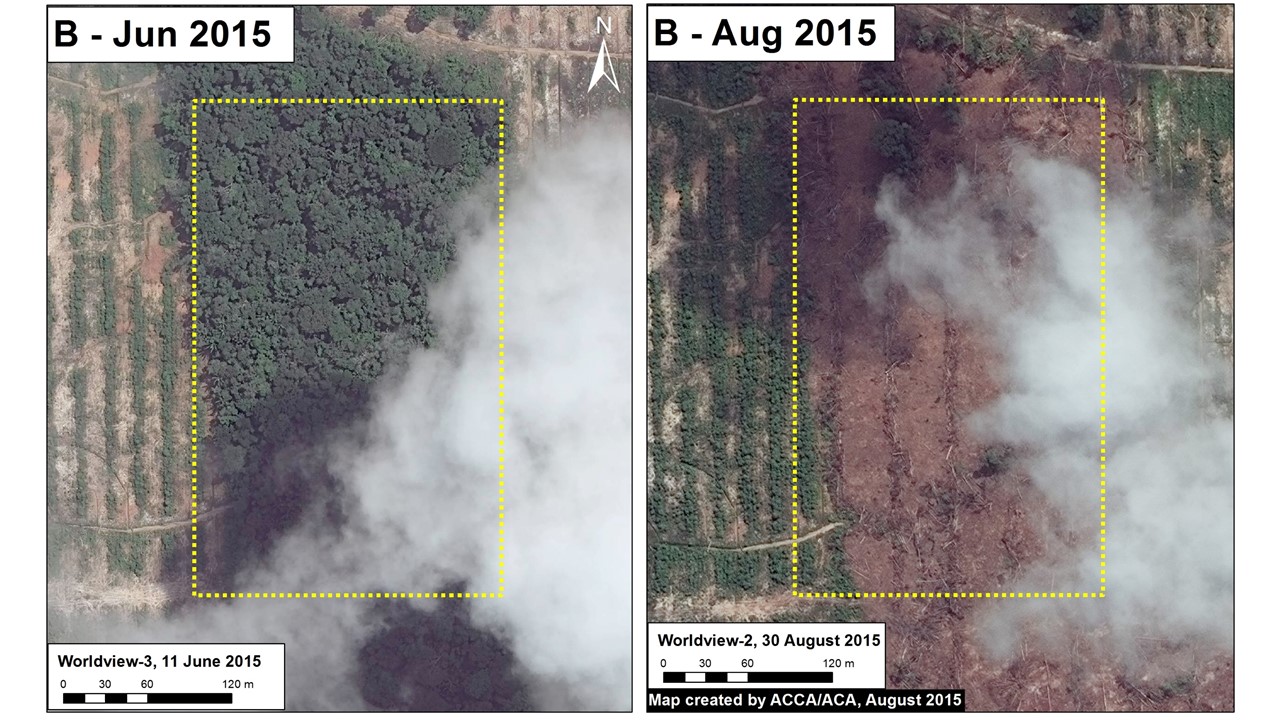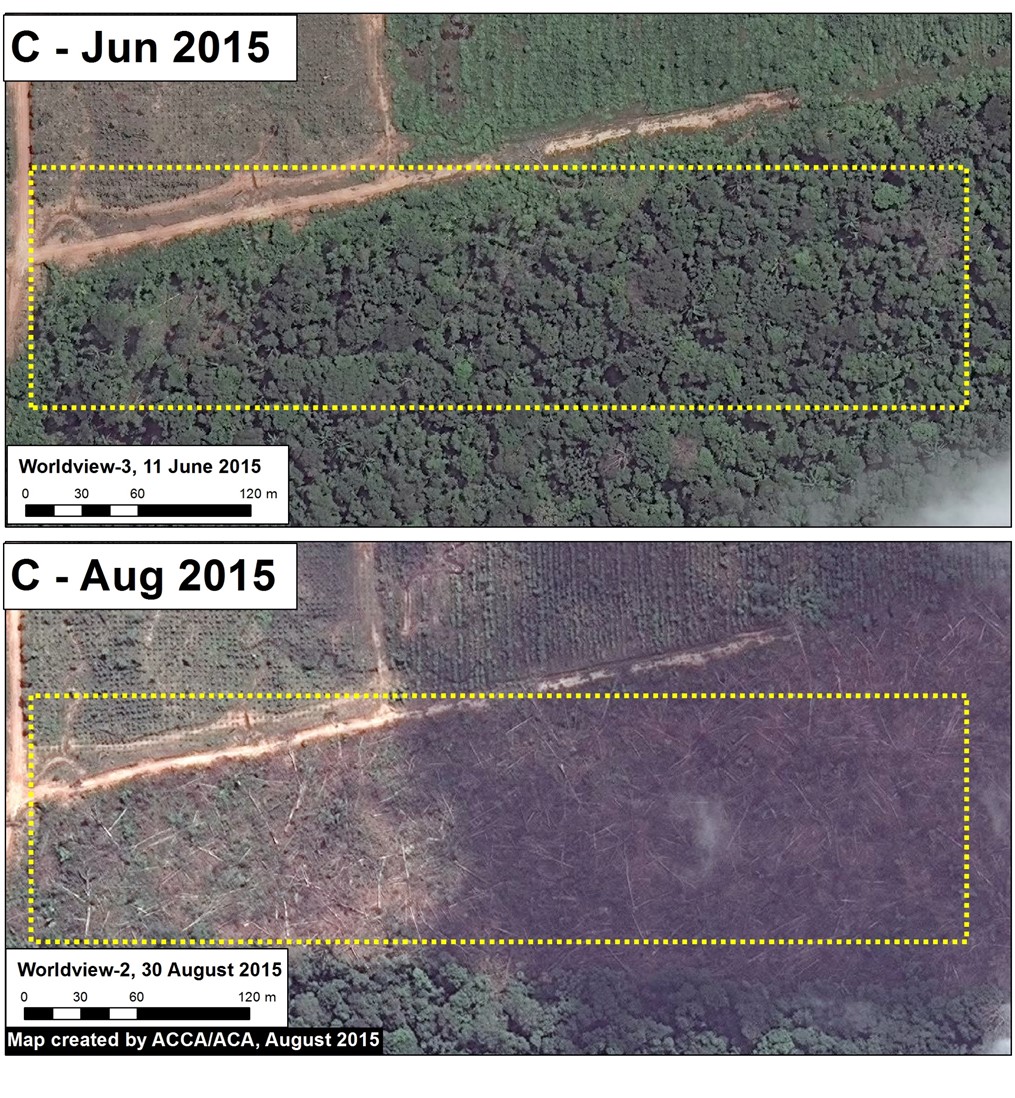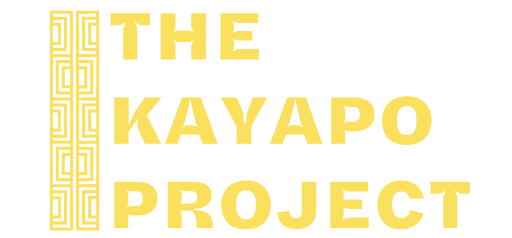
MAAP #13: Clearing of Primary Forest for Cacao Resumes in Tamshiyacu (Loreto, Peru)
September 1, 2015
As confirmed in MAAP #9, the company United Cacao (through its subsidiary in Peru, Cacao Peru North) cleared 2,126 hectares of primary forest between May 2013 and August 2014 to establish a large-scale cacao plantation outside the town of Tamshiyacu, in northeastern Peru (Loreto region). New satellite imagery reveals that the forest clearing has recently resumed in 2015. We detected the cutting of 150 hectares in recent months, bringing the total area cleared as part of the United Cacao project to 2,276 hectares.
Image 13a shows a series of satellite images (NASA Landsat) taken between November 2014 and August 2015. In these images, a clearing of 24 hectares was detected in the period from November 2014 to June 2015. This reduction in forest clearing was possibly because of the Resolution issued by the Ministry of Agriculture, which temporarily paralyzed the agricultural activities of United Cacao.
However, more recent images have revealed a large increase in forest clearing – 126 hectares – between June and August 2015.
This brings to 2,276 ha the total forest clearing generated by the United Cacao project between May 2013 and August 2015.
In the Landsat images, the dark green color indicates forest cover, the light green secondary vegetation, the pink color indicates exposed ground (a key indicator of forest clearing), while scattered patches in black and white indicate clouds and their shadows.
Forest clearing between June and August 2015
Image 13b indicates the location of a number of zooms (see below) that clearly illustrate the forest clearing that occurred between June and August 2015. The images 13c – 13e are of each respective zoom and show each area before and after the forest clearing. Note that Worldview-3 imagery resolution is 33 cm and Worldview-2 imagery resolution is 50 cm.
Changing the Cacao Production Model in Peru
According to a recent interview with the President of United Cacao, the company is adopting the agro-industrial model. In other words, it is changing cacao production in Peru from the traditional small-scale model sited on long-deforested land for the agro-industrial model that requires large land parcels that are normally occupied by forests.
